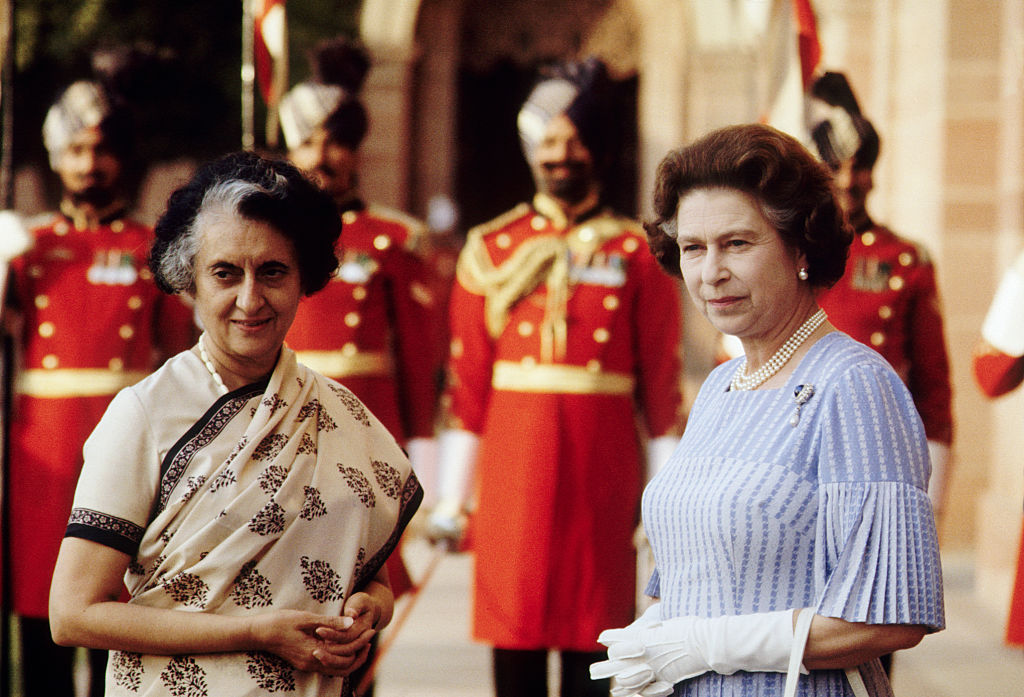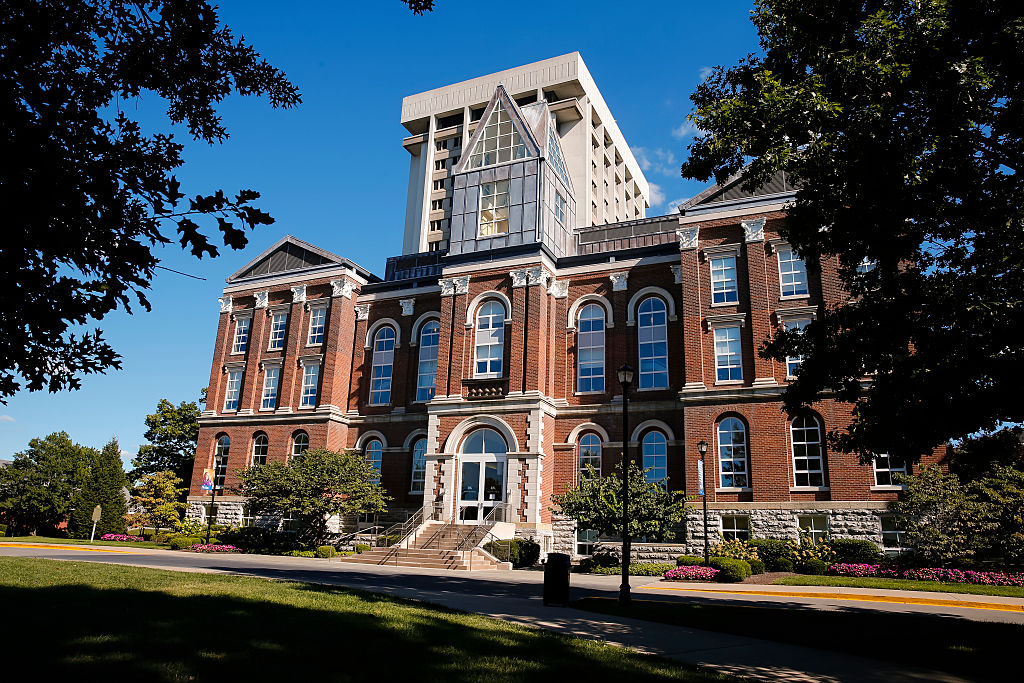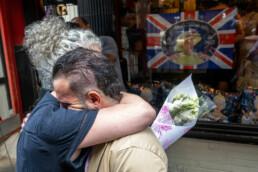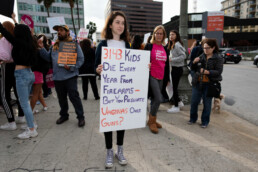"Why Are We Still Talking About Royalty?"
BY MEGAN CARPENTIER
When Queen Elizabeth II—the former Elizabeth Windsor—died last week, she received the uncomplicated veneration we bestow upon world leaders and celebrities (and the occasional person, like The Queen, who was both) upon their passings. But she was also criticized and mocked, online and off, by those whose ancestors and culture had been subject to the violent, extractive colonialism of the vast British empire.
Those criticisms, of course, were inevitably followed by calls to not speak ill of the dead, verbal attacks on those who did, and yet further paeans to her 70 years of rule.
A little background: When Elizabeth Windsor was born in 1926, only a handful of the colonies her family had ruled for generations—Ireland, South Africa, Canada, New Zealand, and Australia—had achieved nominal independence. And by 1952, when she came to power, only India, Pakistan, Sri Lanka, Burma, Palestine, and Egypt had joined them. But within the 15 years of her ascension to the British throne, the empire that had at its height encompassed 25 percent of the Earth’s landmass, controlling the lives of 20 percent of its people, now consisted of just a few islands. (The largest and most populous of these was Hong Kong, which reverted to Chinese control in 1997.)
But though the dissolution of the British empire under Queen Elizabeth II is thought of as peaceful in the popular Western imagination, in many places it was far from an orderly, non-violent handover of power. For instance, mere months after Elizabeth II took the throne, British forces began a nearly decade-long campaign to suppress an independence movement in Kenya, which they referred to as the “Mau Mau uprising.” Recent research has shown this campaign involved the mass detention of 1.5 million Kenyans, most of whom belonged to the Kikuyu ethnic group, and a systematic process of torture, forced labor, rape, and murder that the British government covered up for decades.
The British government still holds documents from 37 other former colonies in still-secret archives that are reportedly similar to the ones that proved their involvement in the “Mau Mau uprising” in Kenya.
Nonetheless, the Queen never apologized for the abuses of colonization, and there have been calls—long-standing and recent—for the British government to do so, and to provide reparations to countries damaged by extractivist colonialist policies and reconsider the role the British monarchy should have (if any) in the 21st century and beyond.
To talk through some of these questions, The Meteor turned to the people whose lives and ancestors were affected by British colonial policies about why there is both criticism and admiration of Queen Elizabeth II—and what her death represents.
“...if the British had found diamonds here, we probably wouldn't be independent now.”
–Tshepo Mokoena, London-based journalist and editor, originally from Botswana
The running joke in my family in Botswana was always that, if the British had found diamonds here, we probably wouldn't be independent now. But we gained independence from the British in 1966; the diamonds were discovered in 1967. [The mining company is jointly owned by the Botswana government.] The diamond money was used to fund public services and public health, which was very important as the HIV crisis hit Botswana in the 1990s.
There was a sense that we happened to time the discovery of the mines quite well, whereas in South Africa—where the mines were found early—there was that constant tug-of-war between the British and the Dutch. And it created centuries of a back-and-forth of European powers trying to control South Africa's resources.
Today I would say that the monarchy feels very distant from Botswana, because it is a small, landlocked country where there is not a strong remnant of white settlers. Besides some leftover rituals around Christmas and Christianity, you don't tend to feel much of that connection to Britain, and especially not to the royal family as an institution.
“But by and large, the reaction [among Indians] has been almost like losing any other beloved celebrity who was like this grandmotherly figure.”
–Rohit Kulkarni, D.C.-based former journalist, originally from India
Currently, whether in Bollywood, among the cricketers from India, or in [Indian] society in general, there is a lot of empathy and sympathy for the royal family, and they really appreciate what the Queen did. She was a chief guest for the India Republic Day celebrations in 1961; there were at least a million people who stood on the roads in New Delhi to say hello to her. The second time she visited was in November 1983, when she met with Prime Minister Indira Gandhi for the Commonwealth Leaders meeting.

She visited for the third time in 1997 (I had just graduated high school and started college) and was supposed to visit the site of one of the biggest British massacres during the regime, which happened in the state of Punjab at a place called Jallianwala Bagh. People asked her to apologize, but she gave a speech the day before she visited in which she spoke about the dark past and how we cannot rewrite the history.
There is a whole generation of people who really don't know much about the dark history and have never witnessed a royal visit, but for whom there has been this fascination with the British royals as just celebrities. At the same time, you'll also see a reaction like, “It's 2022, people. Why are we still talking about royalty? And especially a person who belonged to the family that butchered and massacred our country and destroyed our social fabric.”
But by and large, the reaction [among Indians] has been almost like losing any other beloved celebrity who was like this grandmotherly figure.
“For Irish people, what [the Queen] represents is just so beyond toxic.”
–Sadhbh Walshe, New York-based writer and screenwriter, originally from Ireland
For Irish people, what she represents is just so beyond toxic. And partly that's just this whole idea of the empire and all of that. But I think at the moment what really, really jumps out at me—and what I think some other people feel—is in reaction to the idea that she presided over this period of stability and so on with her great service. And yet, Britain is in the worst state it's ever been; the country is coming apart at the seams. The health services are falling apart, various labor unions are on strike, the ports are a complete mess, the airlines are a mess, ordinary people are literally choosing between food and heat.
This is all happening under “the great stable presence”—and while she and her family have relentlessly enriched themselves at the expense of the general public. She's managed to procure personalized exemptions from more than 160 laws, and some of the things are really questionable: She secured immunity from anti-discrimination laws and from standard workers' rights related to benefits, to pensions, to compensation, [and] working hours.
Looking at that as an Irish person, I just don't know how ordinary Britons can put up with it.

One nice thing: She did visit Ireland in 2011. For all of my childhood, no member of the royal family set foot in Ireland. But she was terrific on that visit. She did all the right things. She expressed “sincere thoughts and deep sympathy” for those who died in the troubles—though the British government has trouble sometimes taking responsibility for its actions—and went to the memorial for the Bloody Sunday victims. I think it really did advance the cause of Irish and British relations.
“The British monarchy is being given a moment—an opportunity—to do something different from its history of pillaging, from its exploitation and oppression of communities of color, beginning with the continent of Africa, all of the Caribbean, India, [and] Asia.”
–Staceyann Chin, poet, actor and activist from Jamaica
Jamaica was once under British rule. [Since 1962] we've become a country in which we have elections [but] the queen is the “head of state,” [even though] Jamaica is not a colony of Britain. We still bow and scrape to her, and when she visits, we still pull out the pomp and ceremony. We still have to get her permission, her blessing, on the things that we're doing with regard to government and leadership. But we have been removed from the list of people who could [visit without a visa]; we were removed from the space where we could become citizens once the British economy grew and their social welfare got better.
What it feels like to me, as a Jamaican citizen, is we still are indebted to England, but England is no longer responsible for us. Essentially, we have no rights as subjects of the queen, but then she gets to say, "These are my subjects."
I think that we should do away with that. The British monarchy is being given a moment—an opportunity—to do something different from its history of pillaging, from its exploitation and oppression of communities of color, beginning with the continent of Africa, all of the Caribbean, India, [and] Asia. I think that Charles is being given an opportunity to do something with his life, to do something to distinguish himself. A rather radical, rather unprecedented opportunity, a giant moment to do something different with this institution that has brought so much pain to so many people on the planet.
Megan Carpentier is currently an editor at Oxygen.com and a columnist at Dame Magazine; she's also worked at NBC News, The Guardian, and Jezebel, among other places. Her work has been published in Rolling Stone, Glamour, The New Republic, the Washington Post, and many more.
Queen Elizabeth's Complicated Legacy
September 8, 2022NEWS,NEWSLETTER
|
Darling Meteor readers, It is, with no exaggeration, the end of an era: Today the British royal family announced the death of Queen Elizabeth II at the age of 96 in her Scottish summer home, Balmoral Castle. After ruling over the United Kingdom for 70 years—longer than any other British monarch—she became a worldwide symbol of power, empire, and the complexities of leadership. Despite everything we know about the queen, the actual woman behind the crown was as much of a mystery as she was a constant presence. The young Elizabeth ascended the throne at the age of 25, assuming a persona of apoliticism and hiding her emotions from public view. Her stoicism, which read as cold indifference to many, marked her entire rule for better or worse. But despite being thrust into a role meant for someone else, she met the impossible task of ruling head-on in the face of a drastically changing world. Her death will mean an array of different things to different people as her legacy is examined and picked apart in the days to come. For some this is a moment to reexamine history, for others, it may be solemn—there’s no singular way to process the death of this particular cultural institution. So during this time, let’s all extend each other a little grace to feel whatever it is we feel, even if it’s nothing at all. And now, a little bit of news. From behind the mourning veil, Shannon Melero  WHAT'S GOING ONSigned, sealed, delivered: On Tuesday, after winning their match against Nigeria, the U.S. Women’s National Team made history once again with the stroke of a pen. Players from the women’s team were joined on the field by the men’s national team to sign their collective bargaining agreements—solidifying the USWNT’s equal pay victory and guaranteeing their $24 million settlement with the U.S Soccer Federation. “The agreement marks the first time in soccer history that a women's national team will receive the same amount of pay as their male counterparts in the World Cup,” the Federation told CBS. And they said it couldn’t be done!  FROM LEFT TO RIGHT: BECKY SAUERBRUNN, CRYSTAL DUNN, AND SAM MEWIS AT THE SIGNING OF AN HISTORIC COLLECTIVE BARGAINING AGREEMENT FOR U.S. SOCCER. (IMAGE VIA TIM NWACHUKWU VIA GETTY IMAGES) To spit or not to spit: Are we being gaslit? For the last two days, the internet (and the Meteor Slack channel) has been torn asunder by this single clip of Harry Styles at the Venice film festival, possibly spitting—or not spitting!—in the general direction of Chris Pine. My eyeballs tell me that Styles spit, or at the very least made a spitting motion in Pine’s direction. But Pine’s reps say no such thing happened and that Mainstream Media™ is just making up rumors. Who can I believe?! Who can I trust!? Is this all just an elaborate publicity stunt to get me to watch a movie I had no intention of watching??? The truth is out there! AND:
  FOLLOW THE METEOR Thank you for reading The Meteor! Got this from a friend? Sign up for your own copy, sent Tuesdays and Thursdays.
|
![]()
The Steubenville Rape Case, Ten Years Later
|
Glad tidings, Meteor readers, Do you hear that distant sound? It’s the gentle rustling of decorative fall knitwear being moved from the back of the closet to the front. (It’s also the sound of me frantically trying to finish knitting this sweater—you should try it!) We have crossed over into September so it’s basically fall which means it’s time to start planning Thanksgiving. And after that, you might as well pick your New Year’s outfit. Time is an illusion. But today’s newsletter isn’t! My brilliant colleague Samhita Mukhopadhyay spoke with author and filmmaker Nancy Schwartzman about her book, Roll Red Roll, which explores every facet of the Steubenville, Ohio rape case of 2012. It’s been a decade since Steubenville, and the way we understand rape culture and sexual assault has evolved—and, in some ways, hasn’t. First, a little bit of news. Counting stitches, Shannon Melero  WHAT'S GOING ONJackson, Mississippi in crisis: On Tuesday the city’s governor declared a state of emergency after 150,000 residents were left without safe drinking water. (There’s still no certainty as to when water will be restored.) The reason for this crisis, Vox explains, is twofold: Recent flooding damaged the city’s largest water treatment plant and there were pumping problems at a secondary plant. But the larger issue is “white divestment from a majority-Black city.” Underfunded and crumbling infrastructure over the course of decades has left the water systems fragile—meaning that now, with the rise in extreme weather, citizens are unable to shower, access drinking water, or even flush toilets. But there are ways to help. Locals in neighboring towns can volunteer to distribute water around Jackson. And for those outside the state, we have a list from The Cut of organizations accepting donations of water and funds.  THE NATIONAL GUARD HAS BEEN CALLED IN TO HELP MANAGE THE WATER CRISIS IN JACKSON. (IMAGE BY BRAD VEST VIA GETTY IMAGES) AND:
 "GOD, FAMILY, FOOTBALL"It's Been Ten Years Since SteubenvilleAuthor and filmmaker Nancy Schwartzman on how far we have and haven't come since the rape case that changed everything.BY SAMHITA MUKHOPADHYAY  ONE OF THE CLOSED MILLS IN STEUBENVILLE, OHIO. (IMAGE BY RICK GERSHON VIA GETTY IMAGES) Content warning: Sexual violence. Please consider your mental health before reading. Ten years ago this month, a young woman was sexually assaulted by a group of high school athletes in Steubenville, Ohio. The girl, who was unconscious, had been transported, stripped of her clothes, and digitally assaulted (meaning the assailants used their hands). Later there would be undeniable evidence: texts and posts on social media in which perpetrators documented, and even bragged, about the horrific acts that took place that night. Two of those students, Trent Mays and Ma’lik Richmond, both 16 at the time, were convicted of rape. Steubenville was a turning point in how we talk about sexual assault and rape culture. It was the first sexual assault case to go viral on social media, sparking major online activism in response. Nancy Schwartzman, a filmmaker and a writer, has followed this case since the beginning, first making a documentary about the town, and most recently publishing Roll Red Roll, a book about the incident. The New York Times called it a “meticulous account” of what happened that night and the culture that allowed for it. This week, I talked to Nancy about the film, the book, and what she learned from all of it. Samhita Mukhopadhyay: Why were you initially drawn to investigating the Steubenville rape case? Nancy Schwartzman: I had already been examining issues of consent in my first film, The Line—what is coercive consent, what is enthusiastic consent, etc. And by the end of having so many conversations with young people about the topic, what became very important, I thought, for us to all be looking at was perpetrator behavior. [Sexual assault was talked about] very much like the Johnny Depp and Amber Heard trial. The victim is scrutinized: her behavior, her alcohol levels, her outfit, her prior sexual conduct. For me, what was just never discussed, and actually where the problem was, was: What are the conditions that enable sexual assault to run rampant, and what are the behaviors we should be looking out for?” When Steubenville broke, [at first] I thought, “Nothing about this is new.” But when I started looking into it more closely, all of the text messages and social media were public. And it was a script of how these guys were talking about the victim, how they were planning it in advance, and how they were egging each other on. So all of a sudden, we had a window into perpetrator behavior.  IS GEN Z GOING TO SAVE US ALL?The kids are all right. The adults are fucking up! That’s not just my hot take—it’s the title of this week’s episode of UNDISTRACTED. Brittney Packnett Cunningham highlights all the ways in which Gen Z has been showing up and showing out to fight back on issues they inherited from elder millennials, boomers, and Gen X. From TikTokers lobbying for student debt relief to eloquent speeches against anti-trans legislation, the kids are leading the charge for the safety of their futures.  Also on the pod: author George M. Johnson and school librarian Jennisen Lucas discuss the latest round of book banning. With the school year already underway in most states, Lucas explains that book ban movements are taking a new shape: “It seems very organized and very national—in the past it’s usually been concerned parents that are worried for their children who come in to talk to us in the library.” Who’s behind these militaristic attacks on cool-ass books? You’ll have to listen to find out.  UNDISTRACTED IS SPONSORED BY:  Goldman Sachs 10,000 Small Businesses provides business education, support services, and pathways to capital for growth-oriented entrepreneurs. Participants gain practical skills to take their business to the next level, on topics such as financial statements, marketing, and employee management, and gain tools to develop a customized business plan for growth---for free. Goldman Sachs 10,000 Small Businesses has served over 12,800 businesses in all 50 states, Washington D.C. and Puerto Rico. Apply today.  FOLLOW THE METEOR Thank you for reading The Meteor! Got this from a friend? Sign up for your own copy, sent Tuesdays and Thursdays.
|
![]()
It's Been Ten Years Since Steubenville
Author and filmmaker Nancy Schwartzman on how far we have and haven't come since the rape case that changed everything.
Content Warning: Sexual assault. Please consider your mental health before reading.
Ten years ago this month, a young woman was sexually assaulted by a group of high school athletes in Steubenville, Ohio. The girl, who was unconscious, had been transported, stripped of her clothes, and digitally assaulted (meaning the assailants used their hands). Later there would be undeniable evidence: texts and posts on social media in which perpetrators documented, and even bragged, about the horrific acts that took place that night. Two of those students, Trent Mays and Ma’lik Richmond, both 16 at the time, were convicted of rape.
Steubenville was a turning point in how we talk about sexual assault and rape culture. It was the first sexual assault case to go viral on social media, sparking major online activism in response. Nancy Schwartzman, a filmmaker and a writer, has followed this case since the beginning, first making a documentary about the town, and most recently publishing Roll Red Roll, a book about the incident. The New York Times called it a “meticulous account” of what happened that night and the culture that allowed for it.
This week, I talked to Nancy about the film, the book, and what she learned from all of it.
Samhita Mukhopadhyay: Why were you initially drawn to investigating the Steubenville rape case?
Nancy Schwartzman: I had already been examining issues of consent in my first film, The Line—what is coercive consent, what is enthusiastic consent, etc. And by the end of having so many conversations with young people about the topic, what became very important, I thought, for us to all be looking at was perpetrator behavior.
[Sexual assault was talked about] very much like the Johnny Depp and Amber Heard trial. The victim is scrutinized: her behavior, her alcohol levels, her outfit, her prior sexual conduct. For me, what was just never discussed, and actually where the problem was: “What are the conditions that enable sexual assault to run rampant, and what are the behaviors we should be looking out for?”
When Steubenville broke, [at first] I thought, “Nothing about this is new.” But when I started looking into it more closely, all of the text messages and social media were public. And it was a script of how these guys were talking about the victim, how they were planning it in advance, and how they were egging each other on. So all of a sudden, we had a window into perpetrator behavior.
It’s hard to remember now, but Steubenville was one of the first big sexual assault cases where social media and the internet played a huge role. That’s why it garnered so much national attention, right?
Yeah, the Times also didn't break the story; Rachel Dissell in Cleveland started reporting on it. And what was happening was more about how this was dividing the town, and then [the hacker group Anonymous got involved] to get more global media attention. That's what caught the New York Times’ eye. I remember when I first went to Steubenville and sent some pictures to people like, "I'm here, I'm here,” someone was like, “Whoa, Steubenville, that town from the internet.” It was the first time the internet world and what we call brick-and-mortar collided.
Going to talk to older people [in the town], it was this fascinating generational divide. A 70-year-old man who runs the appliance shop and volunteers at Fort Steuben, the historical fort, he was just like, “These people, they came in with masks, these people from the internet.” So the internet “invaded” this town, they [came] in with a threatening message and their faces covered in a mask, and then people actually showed up on the courthouse stairs. It was also interesting that the people who showed up were from the town, so they got to benefit from the anonymity of Anonymous—from the fact that the outside world was saying “Yo, what's going on in your town is fucked up." People could agree quietly after years of being silenced, or going along with it, or not even knowing there's an alternative way possible.

Yeah, that is super interesting. One of the things that you’ve explored in the book is the culture that creates sexual assault. Many of these people in the town were upset about the attention the case was getting and felt that the whole thing was overblown. So can you talk about some of those circumstances a little bit, some of those contexts that you were referring to?
Most people I spoke with, including [a lovely man who owned a big family-owned store], would acknowledge, “Well, what happened was bad.” Everybody categorically agreed that it was bad. So aside from the negative attention, they were horrified. I think one of the things folks didn’t understand... I mean, [the store owner] cornered me in his shop and put his fingers in my face and was like, “Digital, it was digital penetration, it was digital.”
Oh my God.
I know. So I think there was a wild misunderstanding of assault in all its forms. And the [digital penetration] was one detail of the case that was eminently provable in court, but there was a lot of stuff that pointed to other sexual misconduct. So there was a physical minimizing of the actual harm, which was obviously a problem. There was also this question of: “If someone is blacked out, how bad can it be?” So there was a wild misunderstanding there.
The people that I really was the most frightened of, in a way, were the mothers of sons. In all of my screenings, I was like, “Oh, shit, there's a bunch of dads in the back, and there's a bunch of men." I called the men in to be my allies. They're in locker rooms, they know, they grew up in this environment and were like, “Yep, I know this behavior, this is familiar to me, this is not good. I have a daughter or a son, and I don't want him in trouble.” [But] it was the mothers of sons that were fiercely protective. “Not my baby,” and “She must have done something.” I just did not expect this level of obstacle with that demographic.
Why do you think that is?
I don't know. I’m not a parent, and I don’t have a son. I think a mother's love for her son... Well, I think in the big picture, this is a place that is really, really, really steeped in patriarchal tradition. The book covers the history of the mills: The men are working, and the women are at home. There aren’t any places for women to go. There's a really strong separate-sphere ideology. Men are at the mill; women are at home. Mill's closed, men are on the football field, boys are on the field, girls are cheerleaders. There were no women on the city council; it's a very, very Catholic town. There are no women in leadership in the clergy. I mean, it was alarming, across the board.
When we’re thinking about moms protecting their sons, mommies generally love their little boys, and their little boys are perfect. If they do something wrong, it’s someone else's fault. I saw that growing up in my town. The way that gender roles play out, it's wildly unsafe to be a young woman or a queer person in that town.
I think a lot of people in the “#MeToo era” are talking about the limits of the criminal justice system in sexual assault. Steubenville is a rare case where perpetrators were convicted. There was some sense of justice through the criminal justice system, and that's because there was so much documented evidence that you could not ignore it. But what was your learning and takeaway from that? And what happened to the boys after they were convicted?
My book has a whole section about transformational justice and different models for justice. For most of us, we get no justice. I talked to Aya Gruber, who’s an amazing feminist criminologist. So often, the burden of “What should be done?” is on the victim. Like, “Well, it's your obligation to report because he could do it to someone else.” You know what? It's not my obligation to do anything because the criminal justice system is so dangerous for women, it's dangerous for people of color, and it's unreliable. It's not a space for justice. The burden should not be on our shoulders to do something.
But the boys were sentenced: Trent was sentenced to two years in juvenile detention, Ma'Lik was sentenced to nine months, and Ma'Lik got out and finished high school. There was a big ripple of anger because he was brought back onto the football team, and that divided the town. People were like, "Hey, football is a privilege; it's not a right. He should be let back into school, but this was the environment that led him to get caught up in something like gang rape. What about the football team has changed to ensure this doesn't happen?" The coach had said, “He did his time. I believe in second chances.” But they didn't bring anything onto the team to ensure that thinking and behavior changed. That was a missed opportunity, big time.
I think what I really wanted folks to understand is that it's not... Every survivor doesn’t have to become a fucking activist. And you're doing nothing wrong if you're a survivor and you decide not to report to the police, because reporting to the police is a dangerous act that might not be in your best interest.

Samhita Mukhopadhyay is a writer, editor, and speaker. She is the former Executive Editor of Teen Vogue and is the co-editor of Nasty Women: Feminism, Resistance and Revolution in Trump's America and the author of Outdated: Why Dating is Ruining Your Love Life, and the forthcoming book, The Myth of Making It.
PHOTO BY HEATHER HAZZAN
Grieving Princess Diana Let Me Mourn My Brother
August 30, 2022NEWS,NEWSLETTER
 August 30, 2022 Hola Meteor readers, I am a puddle of emotions this week. Last night Serena Williams walked onto the court for her first match at her last-ever U.S Open, a tournament she’s won six times over the years. The game was followed by a beautiful tribute from Billie Jean King and a special video narrated by Oprah thanking Serena for everything she’s done for the sport of tennis. And as if that wasn’t enough: Taylor Swift announced a new album for October, so I really don’t know how I’m going to manage all these feelings through the fall. Today’s newsletter is also somber and reflective. In honor of the 25th anniversary of Princess Diana’s death tomorrow, writer Susanne Ramirez de Arellano explores how the princess’s death helped her mourn a more personal one—and what she’s learned in the years since. But first: some news. Lighting a candle, Shannon Melero  WHAT'S GOING ON“Monsoon on steroids.” That’s just one phrase that’s been used to describe the onslaught of devastating floods that have put a third of Pakistan underwater. The word “dire” fails to capture how bad things are, with a death toll of over 1,000, nearly half a million citizens displaced, and entire cities, towns, and agricultural sites completely wiped out. It’s nothing short of a climate catastrophe, made worse by the country’s melting glaciers. To help those in need, please consider donating through UNICEF, the IRC, Islamic Relief, or LaunchGood. Then there’s this: In a video shared by Jessica Valenti on Instagram, a story of forced birth that is too horrific told by a pediatric gynecologist in South Carolina. AND:
 WE REMEMBERIt would be the last time I saw my brother alive. BY SUSANNE RAMÍREZ DE ARELLANO  PRINCESS DIANA IN PARIS, 1988. (IMAGE BY BY JAYNE FINCHER VIA GETTY IMAGES) Tomorrow will be 25 years since Princess Diana died in a car crash in Paris, chased by paparazzi on motorcycles in the Pont de L’Alma. Her tragic end shocked the world and caused an unprecedented outpouring of grief in Britain. Her death also embedded itself as a timepost in my life: It would be the last time I saw my younger brother alive. The sequence of that day plays out in my mind’s eye like an old film. I had traveled from London (where I was living and working for a news agency) to New York to see my brother. He was very sick, but he would be flying from Hawaii to see us. My sister called and bluntly said, “I think you’d better get on a plane.” In a blur, I packed, rushed to the airport, and arrived late at night. My beautiful brother, John Lawrence, known to us as Larry, had full-blown AIDS. I woke up the following day to the front page of The New York Times: Diana, Princess of Wales, 36, Dies in a Crash in Paris. I sat at my sister’s kitchen table, in her beautiful home, with a sense of impending doom, only able to read the first paragraph again and again. I refused to believe it. First, my brother, a shadow of his former self, was dying. And now Diana. Two people whose stories would become surreally intertwined in my life. Diana was a facet of daily life in London. Her face was everywhere: in newspapers and magazines, on television programs, and on tea towels. I had seen the fairytale wedding, witnessed the unraveling of her marriage, and been inspired by the emergence of a strong-willed woman coming into her own. And, of course, we all remember that “revenge dress” at the Serpentine Gallery. My brother and I watched the funeral together. (In truth, I think I forced him to watch it.) He lay on the sofa next to me as I stroked his thin legs, and we spoke of the woman who championed the cause of people living with AIDS. Diana publicly took on the HIV crisis as a cause in 1987 when she opened the U.K.'s first HIV/AIDS unit at London’s Middlesex Hospital. She changed the way people thought about AIDS with just one gesture by shaking hands (without wearing gloves) with an AIDS patient who was terminally ill. It was the 1980s, and the shame around the illness was virulent. For me, her gesture was a visually powerful way to confront HIV/AIDS stigma, a public challenge to the notion that HIV was passed from person to person by touch. It was the opposite of my family’s reaction. My father refused to acknowledge that Larry had AIDS, avoiding the crushing inevitability of what would happen. After my brother passed away, he would say that Larry had died of a tumor.  PRINCESS DIANA EXCHANGING HOLIDAY GIFTS WITH A PATIENT IN AN AIDS HOSPICE IN CANADA. (IMAGE BY TIM GRAHAM VIA GETTY IMAGES) The princess was just 36 when she died; my brother, who passed away two months later, on October 30, 1997, was 37. Today, Diana would be 61 and my brother 62—two lives cut short when both had so much in front of them. At present, there are approximately 38.4 million people across the globe living long and healthy lives with HIV. In 2021, 28.7 million people with HIV had access to antiretroviral therapy globally. Yet I am still angry that more was not done to fight AIDS earlier. It could have saved my brother. Maybe it would have given him time to teach me how to surf. Instead, I can still see him riding the waves, lithe and athletic, like a dancer. Larry would laugh because I never stayed on the board for more than a minute. (But how exhilarating that minute was!) This interlacing of stories—Diana's death and my brother's—is not a weepy fascination; there are no happy endings here. But Diana's funeral, and the collective grief of the British, allowed me to deal with what was happening in my life. The mourning of her loss permitted me to grieve mine.  Susanne Ramírez de Arellano is an author on race and diversity, opinion writer, and cultural critic. The former news director of Univision, she writes for NBC News Think, Latino Rebels, and Nuestros Stories, among other outlets. She lives in Brooklyn and is busy writing her first novel.  FOLLOW THE METEOR Thank you for reading The Meteor! Got this from a friend? Sign up for your own copy, sent Tuesdays and Thursdays.
|
![]()
I Asked 61 Colleges If They Would Pay for Students to Travel for an Abortion. Only Five Hinted That They Might.
August 29, 2022NEWSLETTER,FEATURED STORY
BY TALIA KANTOR LIEBER
On the morning that Roe v. Wade fell, I turned to my father and declared I would not be attending college in a state where I could not legally have an abortion.
Strikethroughs began to appear on my running list of potential schools, a document that is growing and shifting as I enter my junior year of high school. I knew I was in a position of privilege: If I did go to college in one of the 14 states where abortion was banned, I’d have the financial means to travel if I needed to. But that isn't true for many of my friends and classmates. And even with the ability to pay, there are so many students—myself included—who don’t want to take that chance. In fact, a recent survey found that over a third of students seeking higher-ed degrees say the Dobbs decision will affect which institution they attend.
So an idea occurred to me. After the Supreme Court’s ruling, many private companies promised to cover the travel expenses of employees seeking out-of-state abortions (much to the chagrin of some state lawmakers). Why couldn’t colleges do the same? After all, shouldn’t the aim of any school be to support its students, and rid them of any obstacles disrupting their education?
I decided to compile a list of schools in states where abortion is banned (or at high risk of being banned) and ask them one simple question: Would they cover the travel expenses of students forced to seek an out-of-state abortion?
Here’s what I found.
Of the 61 schools I surveyed, only five gave me anything close to a yes. The College of Wooster, Kenyon College, Oberlin College, the University of Idaho, and Vanderbilt University referenced “emergency” or “Student Success” funds that students could potentially access for abortion care or abortion-related travel expenses.
Twenty-one schools—mostly smaller, private institutions—gave ambiguous answers, either saying they were still developing plans or simply stating their commitment to their students.
Nine schools—mostly large public universities—said that they would not pay for travel or had not discussed the topic.
And 26 schools, almost evenly split between public and private, did not respond to repeated requests for comment, even as their students began to set foot on campus.
All in all, the vast majority of the schools I called (which, by rough calculations, are attended by at least 480,000 students who could become pregnant) were not ready to help those students access crucial abortion care.
Read the full list of schools’ responses here.
SO WHY ARE SCHOOLS NOT STEPPING UP THE WAY PRIVATE COMPANIES DID?
Schools are scrambling to create policies around abortion travel, and the reasons are complex. First, there are legal fears, especially for public universities whose budgets are controlled by the same legislatures that banned abortion in the first place. States such as Missouri have laws in place that prohibit the use of public funds for “performing or assisting abortion.” A public institution’s money may very well fall under that category. Other states’ abortion laws are too in flux, or not definitive enough for schools to create concrete policies.
Some states have even begun to explore legislation that outlaws crossing state lines for an abortion. According to Kimberley Harris, a constitutional law professor at Texas Tech University School of Law, “there is supposedly a constitutional right of interstate travel, or at least there has been in the past, but we’ve kind of seen what can happen with constitutional rights.” Bans such as these could even prohibit private schools from supporting abortion-related travel.
And colleges must not only consider the question of where students may go, but the details of their abortions as well. Harris notes the case of Sidley Austin, a law firm that promised to pay for employees to go out-of-state to acquire abortion pills. The firm is facing legal threats from a group of Texas Republicans who claim that Sidley Austin facilitated “illegal” abortions. In a letter to the firm, they argued that “criminal prohibitions extend to drug-induced abortions if any part of the drug regimen is ingested in Texas, even if the drugs were dispensed by an out-of-state abortionist.” If a school were to pay for a student’s abortion travel, says Harris, it could leave the institution susceptible to a similar legal threat.
These questions of liability, Harris explains, may prevent many schools—especially public institutions or those with religious affiliations—from paying. “A lot of colleges are very risk-averse when it comes to this,” she says. “There is a whole lot of fear.” Paying for students’ travel could fall under the category of aiding or abetting abortion, an action that civilians can now be rewarded for reporting in certain states.
That fear may also affect a college’s medical providers or counselors. Telling students abortion is legal in neighboring states has little risk, but Harris believes that providing a direct referral could be riskier. “I think it will be more hinted at,” she said. In other words, a pregnant student could ask their school for support and be turned away—not only without medical care or travel funds, but without any clear advice.

THE CHAOS IN STATE ABORTION LAW—AND HOW IT AFFECTS SCHOOLS
As the answers from schools came in, I felt outraged thinking about the students who would have no institutional support if they needed an abortion. But I also noticed that these schools were just as confused as the students applying to them. Many gave me unclear or placeholder statements, likely because this is uncharted legal territory for them. Beyond travel, colleges are facing an onslaught of questions about abortion in a post-Roe world: How will they protect students' privacy given that, as Jessica Valenti has reported, college students are often not covered by medical privacy laws? Will lack of access to abortion impact other reproductive or medical care at college health centers? And will health centers themselves understand how to respond to the new laws? (A Chronicle of Higher Education survey implies they may not.)
Even the use of emergency funds raises questions about records left by financial transactions, which could serve as legal evidence. And it’s unclear whether students on campuses with funds are even aware those resources exist; colleges generally have an alarming track record when it comes to helping their students put emergency funds to use.
The outlook is grim. But as I spoke to representatives from the schools surveyed, I began to feel sympathetic toward each party involved. Administrators are creating plans with incomplete legal information and an unclear sense of what the ramifications could be. College students are coming to campus unsure of where their school stands or what to do if they or someone they know needs an abortion.
But one thing is clear: This fall, in every state, students will show up on campus and they will, for a variety of reasons, seek out abortions.
What is less clear is what colleges will do to protect them.
WHAT THE SCHOOLS SAID
The 61 colleges and universities in this list are located in 21 states which have either enacted abortion bans or are among those considered likely to do so.. (We also included Florida, which constitutionally protects abortion but has enacted a 15-week ban likely to impact students.) These schools are a mix of the most highly attended schools from each state and smaller, highly-ranked liberal arts schools. Like the American college landscape in general, they include public, private, and religiously affiliated institutions.
I asked each school: Will you pay for the travel expenses of students who need to seek abortions out of state? (Note: I categorized as a “yes” any school with a fund or support that would allow this travel, even if the school itself stopped short of explicit support of abortion travel or made clear that its policy is not to inquire about how the funds are used.)
Agnes Scott College
Decatur, Georgia
No comment.
A spokesperson from Agnes Scott College stated that “there is no comment at this time.”
Arizona State University
Tempe, Arizona
No.
If abortion were to become illegal in the state, Arizona State University told us it will not pay for the travel expenses of students who seek access to abortion.
Auburn University
Auburn, Alabama
No response.
Auburn University did not respond to requests for comment.
Baylor University
Waco, Texas
No response.
Baylor University did not respond to requests for comment.
Berea College
Berea, Kentucky
No response.
Berea College did not respond to requests for comment.
Brigham Young University
Provo, Utah
No response.
Brigham Young University did not respond to requests for comment.
Case Western Reserve University
Cleveland, Ohio
Under review.
Case Western Reserve has not stated whether it will cover students’ travel expenses. A university spokesperson stated that the school is “carefully assessing the situation and has convened a task force to assess all aspects of the decision and its implications for our faculty, students and staff.”
Centre College
Danville, Kentucky
Under review.
A spokesperson for Centre College said the college is “studying the legal restrictions and requirements, and they are in flux until the courts in Kentucky make final decisions on what bans are actually in place.”
Clemson University
Clemson, South Carolina
No response.
Clemson University did not respond to requests for comment.
College of Wooster
Wooster, Ohio
Yes, through an emergency fund.
A College of Wooster spokesperson stated that “if a student needs health care services that are not available locally, the College will support them in accessing care as nearby as possible. For some types of reproductive health care, such as abortion, that may mean assisting a student in accessing care in another state, for example. As for all medical care, students are eligible to apply for emergency funds from the Dean of Students’ office to support urgent reproductive healthcare, including abortion.” In a follow-up statement, the spokesperson said, “Students are able to request emergency travel funds from The College of Wooster for any reason. We will not require documentation of the specific need out of respect for the privacy of the individual.”
Cornell College
Mount Vernon, Iowa
No response.
Cornell College did not respond to requests for comment.
Denison University
Granville, Ohio
Under review.
Denison University has not explicitly stated whether it would cover students’ travel expenses. A spokesperson stated, “We are still assessing both our existing resources and potential new resources. We do anticipate expanding our resources to ensure our campus community members have access to the health care they need.”
DePauw University
Greencastle, Indiana
No response.
DePauw University did not respond to requests for comment.
Earlham College
Richmond, Indiana
Under review.
An Earlham College spokesperson said that the school is “evaluating all of our options to support a woman's right to reproductive healthcare” but could not provide an answer yet on whether it will reimburse students for travel expenses.
Emory University
Atlanta, Georgia
Unclear.
Emory University has not explicitly stated whether it will cover students’ travel expenses. A spokesperson pointed to a statement by Student Health Services, which reads, “Students should contact EUSHIP [Emory University Student Health Insurance Plan] directly to learn what support resources are available when a medical procedure is not available locally.”
Florida State University
Tallahassee, Florida
No response.
Florida State University did not respond to requests for comment.
Furman University
Greenville, South Carolina
Unclear.
Furman University has not stated whether it would cover students’ travel expenses. A spokesperson for the school pointed to a statement from President Elizabeth Davis, which says, “For our students, Furman will continue to provide education about and access to contraception and other healthcare services, as well as counseling for students who have pregnancy concerns, including providing information about prenatal care and available options for terminating a pregnancy.”
Georgia Institute of Technology
Atlanta, Georgia
No response.
Georgia Institute of Technology did not respond to requests for comment.
Grinnell College
Grinnell, Iowa
No response.
Grinnell College did not respond to requests for comment.
Hanover College
Hanover, Indiana
No response.
Hanover College did not respond to requests for comment.
Hendrix College
Conway, Arkansas
Unclear.
In July, a Hendrix College spokesperson said the school could not give an answer because the “policy review/revisions relating to the coming semester will take place over the next several weeks, as they do every summer.” They did not reply when asked for a follow-up comment in August.
Indiana University-Bloomington
Bloomington, Indiana
Unclear.
“Until state legislation is passed, it’s too premature for us to determine if or how IU might be impacted,” said a spokesperson for Indiana University-Bloomington in July. The state has since enacted an abortion ban, but the university told us in August that it is “still assessing the impact and assessing any steps we may need to take for our employees.”
Kenyon College
Gambier, Ohio
Yes, through a "Student Success Fund."
A Kenyon College spokesperson sent us a statement that the school’s senior staff had made addressing reproductive health. It reminds students of a "Student Success Fund that offers financial assistance to students for a range of circumstances. Students may apply for these funds if they are experiencing hardship of any kind, whether or not they qualify for other forms of financial aid.”
Louisiana State University
New Orleans, Louisiana
No response.
Louisiana State University did not respond to requests for comment.
Oberlin College
Oberlin, Ohio
Yes, through the use of emergency funds.
In a statement on reproductive health, Oberlin College President Carmen Ambar said: “We will also continue to work with the Oberlin Doula Collective, which provides support and community for those seeking abortions. And while we have never inquired about the exact purpose of a student’s use of emergency funds needed for health procedures, these funds will still be available to those who meet its criteria.”
Ohio State University
Columbus, Ohio
Unclear, implied no.
Ohio State University “remains deeply committed to the health, safety and well-being of our students… and is closely examining the decision from the Supreme Court and changes in state law,” said a university spokesperson. “If necessary, Ohio State and the medical center will make adjustments to services, course offerings or resources to be in compliance with the law…” The spokesperson also mentioned the University's health care plan for its faculty and staff, which cites the Ohio law that public funds can not legally be spent on elective abortions—amounting to an implicit, if not explicit no.
Ohio Wesleyan University
Delaware, Ohio
Under review.
Ohio Wesleyan University has not explicitly stated whether it would cover students’ travel expenses. A spokesperson said that the school is “considering options to assist students, faculty, or staff who need access to women’s reproductive services that may be more inaccessible as a result of the recent court decision. We will be providing more information to our community when it is available.”
Purdue University
West Lafayette, Indiana
No response.
Purdue University did not respond to requests for comment.
Rhodes College
Memphis, Tennessee
Under review.
Rhodes College has not stated whether it would cover students’ travel expenses. A spokesperson said, “President Collins has assembled a task force to help the college address critical issues and questions resulting from the Supreme Court’s June 24 decision. They will begin meeting soon.”
Rice University
Houston, Texas
Under review.
Rice University has not stated whether it would cover students’ travel expenses. A university spokesperson highlighted a statement that former President David Leebron had made, which says that the school is “exploring how we can best continue to appropriately support the reproductive rights of our community, including access to abortion services. We…will share relevant information in as timely a manner as possible.”
Southern Methodist University
Dallas, Texas
No response.
Southern Methodist University did not respond to requests for comment.
Southwestern University
Georgetown, Texas
No.
Southwestern University told us that the school will not pay for the travel expenses of students seeking access to abortion.
Spelman College
Atlanta, Georgia
No comment.
Spelman College declined to comment on whether it would cover students’ travel expenses. A university spokesperson stated that the school is “closely monitoring the Title IX proposed rules and will make necessary updates based on the final regulations. Title IX has always provided protections regarding pregnancy and parenting. We will continue to assist our community members in accordance with the Title IX regulations and the values of Spelman College.”
Texas A&M University
College Station, Texas
No.
Texas A&M will not pay for its students’ travel expenses when seeking access to abortion. According to a spokesperson for the university: “Student Health Services does not supply funding for travel or medical care outside of our health center. It is only for on-campus medical needs; no surgeries are performed there (nor have they ever). So, for example, if a student had cancer, they would have to seek treatment elsewhere.”
Texas Christian University
Fort Worth, Texas
No comment.
Texas Christian University has not stated whether it would cover students’ travel expenses. A spokesperson told us they did not have information to share.
Transylvania University
Lexington, Kentucky
No comment.
A spokesperson for Transylvania University said that, to their knowledge, the school has “not held any discussions on the topic.”
Tulane University
New Orleans, Louisiana
No response.
Tulane University did not respond to requests for comment.
University of Alabama
Tuscaloosa, Alabama
No response.
The University of Alabama did not respond to requests for comment.
University of Arizona
Tucson, Arizona
No response.
The University of Arizona did not respond to requests for comment.
University of Arkansas
Fayetteville, Arkansas
Unclear.
The University of Arkansas has not stated whether it would cover students’ travel expenses. A spokesperson for the university stated, “The Pat Walker Health Center on campus is dedicated to supporting the health and well-being of the campus community and will abide by state and federal law.”
University of Florida
Gainesville, Florida
No.
Asked whether it might cover students’ out-of-state travel, a spokesperson for the University of Florida said that they were “not aware of any such plans.”
University of Georgia
Athens, Georgia
No response.
The University of Georgia did not respond to requests for comment.
University of Idaho
Moscow, Idaho
Yes, though only through the use of donated (not school-provided) emergency funds.
A spokesperson from the University of Idaho said that the school “does not provide money specifically for students to travel for an abortion. The university does have emergency funds available to students. These small allocations of donated dollars (typically a couple hundred dollars) are given out without verification of need or use. While it is possible a student could use it for this, the university does not get involved in the medical decisions of our students….We provide information and resources that allow students to make informed and independent decisions.”
University of Iowa
Iowa City, Iowa
No response.
The University of Iowa did not respond to requests for comment.
University of Kentucky
Lexington, Kentucky
Unclear.
A spokesperson stated, “UK’s insurance plans do not cover elective abortions. We are in the process of analyzing the impacts of the Supreme Court’s decision as we move forward in compliance with state law.”
University of Miami
Miami, Florida
No response.
The University of Miami did not respond to requests for comment.
University of Mississippi
Oxford, Mississippi
No.
The University of Mississippi will not pay for the travel expenses of students seeking access to abortion.“The university only covers travel expenses for students when they are traveling on university-related business,” said a spokesperson.
University of Missouri
Columbia, Missouri
No.
The University of Missouri will not pay for the travel expenses of students seeking access to abortion. A spokesperson provided further context, explaining that “prior to the Dobbs decision, Missouri state law that was already in place prohibits university funds, employees and facilities from being used in any way to perform abortions.”
University of North Dakota
Grand Forks, North Dakota
No.
The University of North Dakota will not pay for the travel expenses of students seeking access to abortion. The school “does not have any policies in place to cover the cost for travel,” said a spokesperson.
University of Notre Dame
Notre Dame, Indiana
No response.
The University of Notre Dame did not respond to requests for comment.
University of Oklahoma
Norman, Oklahoma
Unclear.
The University of Oklahoma has not stated whether it would cover students’ travel expenses. A spokesperson said the school’s “top focus is supporting the needs, aspirations, and well-being of our students. While the university must and will comply with all applicable laws, we remain unwavering in our commitment to serve our students to the fullest extent possible.”
University of South Carolina
Columbia, South Carolina
No response.
The University of South Carolina did not respond to requests for comment.
University of South Dakota
Vermillion, South Dakota
No response.
The University of South Dakota did not respond to requests for comment.
University of Tennessee
Knoxville, Tennessee
No.
The University of Tennessee told us that it will not pay for the travel expenses of students seeking access to abortion.
University of Texas at Austin
Austin, Texas
Unclear.
The University of Texas at Austin has not stated whether it would pay the travel expenses of students seeking abortion care. A spokesperson noted that University Health Services “does not dispense abortive medications, provide abortion services or obstetrical/prenatal services.”
University of Texas at Dallas
Dallas, Texas
No response.
The University of Texas at Dallas did not respond to requests for comment.
University of Utah
Salt Lake City, Utah
No.
The University of Utah told us that it will not pay for its students’ travel expenses when seeking access to abortion.
University of Wyoming
Laramie, Wyoming
No response.
The University of Wyoming did not respond to requests for comment.
Vanderbilt University
Nashville, Tennessee
Yes, through a “Student Critical Support Fund.”
A Vanderbilt University spokesperson pointed to a statement from the school, which explains that students will have the opportunity to apply for financial support from the “Student Critical Support Fund, formerly the Student Hardship Fund, that aids with unexpected expenses, including costs related to any medical procedure not available in Tennessee. Details on how to apply will be shared in the coming weeks.”
Washington University at St. Louis
St. Louis, Missouri
No comment.
Washington University at St. Louis declined to comment beyond a statement made by the school’s Chancellor Andrew Martin and Dean David Perlmutter, which reads that “we must keep our focus squarely on the mission of the university — research, education, and patient care.”
Wofford College
Spartanburg, South Carolina
No response.
Wofford College did not respond to requests for comment.
Don’t see your school on this list, but wondering what its policy might be? Call the Dean of Students—or the department in charge of student life—or the President and ask. Here’s the wording I used: Will [insert college] cover travel expenses for students who travel out of state to seek an abortion?
If you do reach out to your administrators, send us an email at [email protected] and let us know what they say. As abortion laws change, we’ll be updating this list—with more states—this fall.
Missouri Parents Want to Bring Spanking Back
August 25, 2022NEWS,NEWSLETTER
|
Good evening Meteor readers, So I assume we’ve all taken a look at Biden’s student loan forgiveness plan by now and had time to run our own numbers and shake our fists at the sky, wondering why this man won’t hit the delete button on everyone’s student debt. Perhaps that’s overly idealistic of me—but it’s equally idealistic for federal loan programs to believe paying $400 a month until the year 3000 is any way to live.  BIG SHOUT OUT TO THE ONE PERSON ON THE RIGHT WHO BROUGHT SNACKS TO THE STUDENT LOAN BORROWERS RALLY IN DC THIS WEEK. (IMAGE BY PAUL MORIGI VIA GETTY IMAGES) But a win is still a win, and this was a win since activists have been working to bring this possibility to life for over a decade. When some of us first started college, “loan forgiveness” wasn’t even a phrase anyone used. And now, it’s the talk of the town! Imagine how much we could get if we pushed for a few more years…But I digress. (Trust me, I could drone on for days about this.) Today we’re loaning you our overview of the news at an introductory rate of 0% interest for the full term of your time here. Let’s roll. Swiping my abacus, Shannon Melero  WHAT'S GOING ONIdaho again: A judge has placed an injunction on a portion of Idaho’s near-total abortion ban. Although most of the ban goes into effect today, the portion of the law allowing felony charges for physicians providing abortion services is on hold. According to Politico, it “does not provide adequate protection for physicians who perform abortions during a medical emergency, and therefore runs afoul of federal law guaranteeing patients the right to treatment when their health or life is at risk.” But people who help abortion patients in Idaho can still be sued for $20,000, and nearly all abortions are now illegal in the state. You can always help by donating to the state’s local abortion fund. The blue wave that could: The results are in from Tuesday’s primaries in New York and Florida. And surprisingly, it’s not all bad news! Staten Island (which I’m being told is part of New York???) had its highest turnout for a Democratic primary ever. In Florida, an Afro-Cuban Gen Z nominee, Maxwell Alejandro Frost, is almost assured to be the first Gen Zer in Congress after beating out more experienced candidates. And Aramis Ayala, who went toe to toe with former Florida governor Rick Scott over the death penalty, secured the nomination for her state’s attorney general. We have a long way to go before November 8—but this is promising. It shows that people are fed up and ready to fight back.  What the actual fuck: A Missouri school district has reinstated corporal punishment (specifically, hitting with paddles) as a last resort to discipline students. And if that’s not wild enough for you: this proposal was brought to the district by parents who wanted their children to be physically disciplined at school and asked for a vote on reinstating the policy. (Families will still be able to opt-out of the new “paddling” policy by filling out a form.) Now I have no children, so maybe I am missing some sort of logic here, BUT I did once write a lengthy piece about the roots of child-hitting, which go back to the time of colonization and enslavement. The TL;DR is that hitting as a form of discipline in the U.S. arose as a direct response to acculturation and fear of worse violence enacted by the “dominant racial group.” Parents, specifically parents of color, feared what would happen to their children if they misbehaved in front of white authority figures. So the behavior was curbed (to the extreme) inside the home in the hopes of achieving some degree of safety. So what exactly are we teaching kids in Missouri (a state with a 31% Black and Latine population) about themselves when we allow them to be hit in school by an authority figure? Make it make sense. AND:
 WHAT WE'RE READING, WATCHING, AND LISTENING TO THIS WEEKENDIf you don’t plan to spend your weekend watching the MTV VMAs (yes, that program is still running, and sadly I live quite close to where it’s happening), here are some culture offerings we’re enjoying on our days off:

 FOLLOW THE METEOR Thank you for reading The Meteor! Got this from a friend? Sign up for your own copy, sent Tuesdays and Thursdays.
|
![]()
It's always been hard for teens seeking abortions
August 23, 2022NEWS,NEWSLETTER
|
Valar morghulis Meteor readers, If that greeting confused you, then I gather you’re not one of the 10 million viewers who tuned in to watch House of the Dragon (the Game of Thrones prequel series) on Sunday. Which is fine, we all have our own thing, and apparently, my thing involves fawning over Matt Smith in a long flowing white wig as he’s waffling between villain and unloved elf man.  My doctoral thesis on how this fictional universe is not anti-feminist is forthcoming. For today’s edition, we’re flying our dragons over the glittering sea of news, so let’s get to it. Valar dohaeris, Shannon Melero (of house Targaryan) P.S. If you’re a New York, Florida, or Oklahoma resident, it’s an election day for you. If you haven’t already, find your polling station and VOTE. You can take this newsletter with you and read it in line.  WHAT'S GOING ONWe’re going to miss you: Dr. Anthony Fauci, a beacon of hope and common sense during the early days of COVID, announced Monday that he would be stepping down from his position as White House Chief Medical Adviser in December. He is NOT retiring but simply “[pursuing] other directions” in his career—which is impressive because he is fully 81 years old and has committed five decades of his life to public service. But in the government, at least: his watch has ended (sorry, last Thrones reference, I promise). Naturally, haters in the Republican party are still threatening an investigation into Fauci’s exact role in the government’s less-than-stellar pandemic response. Here’s what I know: it wasn’t this elderly man who was encouraging me to drink bleach and continue working as if COVID wasn’t real.  AND:

 LET KIDS CHOOSETeens also need abortion rights. Why have we made it so hard for them?BY CINDI LEIVE  A CALIFORNIA TEEN HAVING TO DO THE HARD WORK OF FIGHTING FOR HER RIGHTS BECAUSE THE ADULTS KEEP DROPPING THE BALL. (IMAGE BY RONAN TIVONY VIA GETTY IMAGES) You probably read the headlines last week: A “parentless” 16-year-old in Florida had been denied the right to end her pregnancy by a court that found her “too immature” to make that decision. “I have no words…just rage,” read one typical comment on The Meteor’s post on the subject. “Too immature to have an abortion but mature enough to be a mother at 16?” asked another. “DA FUCK is this ruling?” Excellent question, but if you think that the answer starts on June 24, when the Supreme Court overturned Roe v. Wade—nope. For decades, teens have had to jump through flaming hoops of humiliation to end their pregnancies. Florida, in fact, has not outlawed abortion—but it is among the at least 36 states with measures requiring teens to notify or secure the permission of one or both parents in order to receive care. The first time I got enraged about this was almost three decades ago, in the 1990s, when, as a fresh-out-of-college editorial assistant, I sat in an editorial meeting at Glamour magazine and pitched a story on the newly emerging parental notification laws. (The knowledge that I wouldn’t have been at that conference-room table at all without the abortion I’d been able to get my freshman year was a motivating if unspoken factor.) Since then, most states have rolled out notification or consent laws—with “judicial bypass” exceptions that allow teens who don’t want to or can’t tell their parents to petition a judge instead for permission to end a pregnancy. The laws became the norm, and many Americans got used to them—an apparently “acceptable” infringement of rights, like the repro equivalent of a drinking age. Except they’re not. The American Academy of Pediatrics opposes these restrictions, pointing out that most teens who can tell a parent about their abortion decision do (I did), and those who opt not to have solid and sometimes terrifying reasons. Plus, the judicial bypass process, meant to make things better, is only as good as the judge you get: In one study published in the Journal of Adolescent Health in 2019, teenagers who went through that system in Texas described it as “intimidating” and “scary,” full of judges who “preached” at them. “We found the bypass process functions as a form of punishment and allows state actors to humiliate adolescents for their personal decisions,” concluded the authors. Just six months ago, another Florida judge denied a 17-year-old an abortion, citing her low GPA as justification. (Don’t try to think through the logic.) Now the horror of post-Roe America has made things worse. For one thing, judicial bypass could disappear as an option, potentially even in states where abortion is legal. And if abortion is illegal in a state, teenagers there are less likely than adults to have money to travel out of state; less likely to be able to rent a car in their name; and less likely to be able to find a telehealth option, usually only available to those over 18. In other words, it’s bad. But—it’s been bad. And this is another reminder that, as Monica Simpson of SisterSong puts it, Roe was the floor. We don’t want to return to a world where legal abortion exists only for the wealthy, the white, or the appropriately “mature,” whatever that means. We want, and need, access for everyone, teenagers included. We should never have gotten used to less. Everyone needs abortion funds. Teens really need abortion funds. Find your local one at abortionfunds.org.  Cindi Leive is the co-founder of The Meteor, the former editor-in-chief of Glamour and Self, and the author or producer of best-selling books including Together We Rise.  FOLLOW THE METEOR Thank you for reading The Meteor! Got this from a friend? Sign up for your own copy, sent Tuesdays and Thursdays.
|
![]()
Why "men are trash" is not enough
August 18, 2022NEWS,NEWSLETTER
|
Hello, hello, hello Meteor readers, I’m sliding into your inbox this evening in a reflective mood for two very good reasons. The first being that I’m currently reading a book about breathing (recommend), and it’s really got me wondering if I’ve been doing it wrong the entire time. The second is the Q&A in today’s newsletter, which has been like a perfectly cooked steak for my mind since I read the first draft; I just keep coming back to it. My wonderful and talented colleague Samhita Mukhopadhyay spoke to journalist Nona Willis Aronowitz about her latest book, “Bad Sex: Truth, Pleasure and an Unfinished Revolution.” It’s a conversation about the philosophical dilemma of being a heterosexual feminist, (which, yes, is possible). But before all that exciting stuff, an amuse bouche of news. Questioning everything, Shannon Melero  WHAT'S GOING ONSay what ya need to say: Once again, Mike Pence is being given a chance to be more than a stain on history and is doing everything in his power to screw it up. Speaking at a college conference on Wednesday, Pence said that he would consider testifying before the January 6 committee if invited. But he stopped short of giving an absolute yes, despite admitting that “the American people deserve to know what happened.” We do, Mike! And this will I won’t I game you’re playing isn’t cute or noble or anything other than frustrating. If you want the good guy points, get in the chair and tell us the truth.  Bad brother: Embattled former New York governor Andrew Cuomo will be allowed to keep the $5 million he earned from his book about leading the state through season one of the pandemic. In case you can’t remember why this is a big deal: Cuomo used state resources to write the book, including having some of his staff work on it during office hours, an ethics committee ruled that the profit should be put back into state funds. And contrary to the account he gave in his masturbatory memoir, Cuomo was also found to have mismanaged the pandemic. Also, we’ve really given up on questioning him about that whole serial sexual harassment thing, huh? Let's never talk about this again: The NFL and NFLPA have come to a final settlement agreement with Cleveland Browns quarterback Deshaun Watson. Originally, an arbitrator had ruled to suspend Watson for six games due to the 24 civil lawsuits filed against him alleging sexual misconduct (nearly all of which have been settled outside of court). After an appeal process initiated by commissioner Roger Goodell, Watson will now have to miss 11 games and be hit with a $5 million fine. As someone who perpetually holds out hope that all sports can be better, this is not enough. I understand the punishment is lenient because there were no criminal charges or arrests made but at some point, the NFLPA should draw a line in the sand (I repeat 24 civil lawsuits). It is disappointing they felt anything less than a full season suspension was adequate. Watson still maintains his innocence and claims that he “never assaulted or disrespected anyone.” AND:
  LET'S TALK ABOUT SEXWhen “Men Are Trash” Is Not EnoughAccording to Bad Sex, if you are going to date men and be a feminist about it, you should ask yourself why.BY SAMHITA MUKHOPADHYAY  THE TRUE MAGIC OF BOOKS THAT MAKE YOU THINK. (PHOTO BY COURTESY OF NONA WILLIS ARONOWITZ) Feminists have generally been interested in—and for—women’s sexual freedom. But what happens when sexual liberation—understood as women’s freedom to choose how, when, why, and with whom she has sex—is not enough? That’s exactly what my good friend Nona Willis Aronowitz’s new book “Bad Sex: Truth, Pleasure and an Unfinished Revolution” tackles. Part memoir, partly reported, part historiography, the book investigates a brutal truth: how can we sometimes be as free as can be and still unsatisfied in our sexual and love lives? I talked to Nona last week at her book launch. This is a shortened version of our riveting (if I do say so myself!) conversation. Samhita Mukhopadhyay: At what point did you realize you wanted to write a book about s-e-x? Nona Willis Aronowitz: I consider myself a journalist. I've written on a lot of different topics, but ultimately I kept coming back to gender and sexuality over and over again, especially around 2017 when my life was a total mess and also #metoo was happening, and there was this renewed conversation about sex and pleasure. The book is a seamless combination of memoir and history. What was the process of piecing that together? My journey is genuinely connected to reading about all this stuff at the same time things were happening to me. I was up in the library reading about Emma Goldman [and her nonmonogamy] just as I was grappling with nonmonogamy, and I was reading about Dana Densmore and the celibates [who believed the path to feminist liberation was to withhold sex from men] just as I was taking a break from sex. So it was actually an intellectual journey coupled with an emotional journey. My mother, Ellen Willis, was a pro-sex feminist from the sixties and seventies and eighties and nineties, and her legacy was all over this topic. She died in 2006, and I'd been grappling with her work ever since, but this was sort of the deepest, most visceral way that I was grappling with it because finally, I was her age when she was writing, in my thirties and going through some of the same things that she [had been] going through. So I really felt like, for the first time, we were dialoguing rather than me as 22-year-old reading stuff from my mom.  CHEERS TO BESTIES WITH BOOK DEALS. (PHOTO COURTESY OF NONA WILLIS ARONOWITZ) I don’t think many people are in a situation where they report out a close relationship. Talk a little about that experience: emotionally and technically going into your mom’s archive, talking to her ex-boyfriends, etc. Yeah. I mean, it’s interesting because I’d known all my life the two ex-boyfriends I spoke to for this book. She was the type of person to keep exes in the mix as friends. I learned a lot of new stuff while technically interviewing them for this, but I knew both of these men. What really was amazing and fascinating was talking to my dad’s ex-wife, Jane. She was very generous with her story. We don’t know each other very well, and she told me some painful things about a dad I didn’t even recognize. So I also did reporting on my dad’s life, my dad’s early life, which, I mean, both my parents grew up in the forties and fifties, respectively. So this is a long ass time ago. So the socialization was different, and they both had to reinvent themselves, and some of those early versions of them, I truly didn’t recognize. I couldn’t help but wonder while reading the book, “God, it could have been so different for me if my parents didn’t put so much pressure on me to get married and so much shame on me about my sexuality.” You had the opposite experience. Yeah, although my parents didn’t apply the pressure. My mom gave me a lot of latitude when it came to being a teenage girl who made mistakes and did whatever I needed to do. She gave me the privacy that I think some teens really dream about. So what I think happened was not shame around sexuality, but shame around not being this perfect sexual feminist because some of my earliest idols were Samantha from Sex in the City and Lil Kim and Foxy Brown and stuff, these very seemingly invulnerable, but obviously not truly invulnerable women who are just like, “I’m going to get that. I’m going to get my pussy ate,” or whatever. I wanted to be them. So I didn’t have shame around my desires, but I did have shame around just not living up to some sort of straw woman expectation of feminism [that casual sex was enough when it wasn’t always].  YOU KNOW A BOOK IS GOOD WHEN THE BACK COVER LOOKS LIKE THIS. (PHOTO COURTESY OF NONA WILLIS ARONOWITZ) In the late 90s and early 2000s, there was a lot of pushback on traditional ideas of marriage, and there was more cultural space to be like “I want to be nonmonogamous” or “I want to be casual” or whatever. But, I remember when my friends started to get married, they’d say to me, “I know I’m a really bad feminist, but” trying to make this historically sexist institution feminist in some way. I mean, I thought that I could escape the binds, expectations, and privileges of marriage by just having this irreverent marriage for health insurance. I couldn’t. Marriage gives you status. Marriage gives you heft with old people. It gives you benefits. There are all kinds of crutches and ways in which marriage sort of bumps up your status that’s hard to let go of, even if you’re supposedly a leftist, radical, or free spirit. So, the book is out in the world, and people are responding to it. And not everyone is going to understand it. Some people argue that if women want marriage and monogamy, feminists should be okay with that or that traditional ideas of courtship are actually more feminist than the lack of accountability that might come from casual sex, etc. You addressed some of this backlash to sex-positive feminism in a recent New York Times op-ed. Nona, what else do you have to say to your haters? Well, I do agree that there’s something very wrong with what ‘sex positivity’ has turned into. The premise of the book is that not only the patriarchy but also a certain strain of [sex positive] "feminism" has put a lot of pressure on women. I just disagree about the solutions. Many people are saying there need to be more rules and boundaries. I’m saying there actually needs to be more freedom. I’ll take monogamy as an example—or, let’s say, commitment. People say that a lot of women want commitment [from a partner], but they’re afraid to ask for it, they’re suppressing their true feelings, and their emotional needs are not met by hookup culture. It’s not like I would disagree with that—but I would also say, “Okay, you can’t just take desire at face value.” There are socially constructed reasons why you desire what you desire. That’s true for monogamy. There’s a lot of internalized messaging from a very young age that people aren’t respecting you unless they’re monogamous. I’m not saying that non-monogamy is the real feminism or that monogamy is the real feminism. I’m saying interrogate your desires as much as you possibly can. To me, the core of this book is exploring how to be heterosexual and a feminist…which for a lot of women is simply the default that “men are trash, but we love them anyway.” I don’t think the ‘men are trash’ paradigm is helpful. I think it can be cathartic: Anger towards men is legit; patriarchy sucks. But what does that mean for your life if you say men are trash and still endeavor to love and partner with them? Actually, it’s interesting. Heterosexual women are the only marginalized or oppressed identity who are meant to partner with and fuck and love their oppressors. In most other contexts, you can be a separatist, and there were lesbian separatists, of course, but then it’s like, how do you continue society? We do need men. And, if you truly are heterosexual and you really do want to have loving relationships with men, it’s worth investigating why and how. So ultimately, fine. Have your ‘men are trash’ moment, but then push further—ask yourself why I am attracted to men and why do I want to be with them.  PHOTO BY HEATHER HAZZAN Samhita Mukhopadhyay is a writer, editor, and speaker. She is the former Executive Editor of Teen Vogue and is the co-editor of Nasty Women: Feminism, Resistance and Revolution in Trump's America and the author of Outdated: Why Dating is Ruining Your Love Life, and the forthcoming book, The Myth of Making It.  FOLLOW THE METEOR Thank you for reading The Meteor! Got this from a friend? Sign up for your own copy, sent Tuesdays and Thursdays.
|
![]()
Liz Cheney's Challenger Is a Nightmare
August 16, 2022NEWS,NEWSLETTER
  August 16, 2022 Greetings Meteor readers, I wish I could say it’s a great day to be here—but polio is back, and cleaning solution has been found in Capri Sun packets. I don’t know how much I believe in the End Times, as explained in The Book of Revelations, but I could be convinced if we get hit with one more plague. Speaking of, in today’s newsletter, we’re talking about Harriet Hageman, the Wyoming Republican who is projected to win her primary tonight against U.S. Rep. Liz Cheney. Hageman is just the latest addition to our frightening era of right-wing politics, so we’re especially grateful to have Meteor editor and Wyomingite Julianne Escobedo Shepherd give us the full breakdown from the state that out-Trumps them all—and explain what Hageman’s potential win means for the rest of the country. But before that, let’s run through some news. Eyes peeled for the seventh seal 👁, Shannon Melero  WHAT'S GOING ON The Gem State: Last Friday, the Idaho Supreme Court ruled that the state’s extreme abortion ban can still go into effect despite the lawsuits filed against it, including one from the Biden administration. Beginning August 25, Idaho will enforce a near-total abortion ban with some exceptions for rape, incest, or preserving the life of the pregnant person. However, a different law also tied up in suits will go into effect immediately: Under this one, “potential relatives” of a fetus aborted after six weeks can now sue abortion providers for $20,000. That means a person’s grandmother, or a partner’s parent, can complain on behalf of a grouping of cells they never met. You can donate to abortion funds in Idaho here. Explain the logic: A 16-year-old in Florida who is reportedly “parentless” asked a court to grant her permission to seek an abortion, per Florida laws requiring minors to have parental consent to obtain one. The court said no, an appeal was filed, and the appellate court upheld the original decision, stating that the 16-year-old “had not established by clear and convincing evidence that she was sufficiently mature to decide whether to terminate her pregnancy.” So she’s not mature enough to make a decision over her own body but is mature enough to carry a pregnancy to term? Something I, at 30, don’t feel entirely mature enough to do? Make it make sense! AND:
  HOME ON THE RANGEHarriet Hageman Will Be a Nightmare for WyomingLiz Cheney is a staunch conservative, but at least she believes in democracy.BY JULIANNE ESCOBEDO SHEPHERD  THE FUTURE OF WYOMING WEARS A LOT OF APPROPRIATIVE TURQUOISE. (PHOTO BY NATALIE BEHRING VIA GETTY IMAGES) It should come as no surprise if Rep. Liz Cheney of Wyoming—who has made it her mission to carve a path for anti-Trump Republicans—is ousted in today’s primary election by virulently conservative, pro-Trump Cheyenne lawyer Harriet Hageman. But for me, as a born-and-raised Wyomingite, this race has been especially excruciating to watch. First of all, it has been psychically painful to feel vaguely protective of any member of the Cheney family—let alone the staunchly conservative Liz, daughter of Wyoming’s Dark Father Dick. Is this how ass-backward national politics have become that I, a Xicana with progressive-left politics and a Brooklyn zip code, am rooting for Liz Cheney to win her primary simply because she has the huevos to stick up for democracy? But I am because the alternative—Cheyenne lawyer Harriet Hageman, an election and climate-change denier and federal government hater—is certainly much worse. And I’m not alone: some Wyoming Democrats, who don’t have a chance in national contests, have switched their party affiliations to cast their primary votes for Liz. How did this happen? Cheney is a Republican stalwart by any measure—she’s anti-abortion and pro-fossil fuels and generally espouses historically popular values in the sparsely populated state. (In the last 70 years, the only Democratic president Wyoming sided with was Lyndon B. Johnson.) But Wyoming has also prided itself on a kind of libertarian ethos that falls squarely in the mythical bootstraps-pulling framework of “rugged individualism,” making it more susceptible to right-leaning “populist” movements that disdain entrenched politicians and the federal government overall. And that susceptibility has only increased. By 2015, a study at the University of Wyoming found that nearly four in 10 Wyomingites agreed with the Tea Party, the right-wing precursor to the MAGA movement. Today, Wyoming is the most pro-Trump state in America, with 69.9% of the vote going toward him in 2020.  WHO WOULD'VE THOUGHT LIZ CHENEY WOULD BE A REASONABLE CHOICE? (PHOTO BY BILL CLARK VIA GETTY IMAGES) And because Cheney has been unwilling to capitulate to Trump, the state’s rightward tilt has cast her as a careerist “RINO.” Last year after she voted to impeach Trump, she was excommunicated from the state’s Republican Party by its chair, Frank Eathorne, a former cop and alleged January 6 participant affiliated with the white supremacist Oath Keepers militia. To a lot of people in my home state, Cheney’s opposition to Trump’s election lies and inaction on January 6—despite having voted with him over 92% of the time—has been received as unforgivable heresy. (Last month, I took a reporting trip through some of Wyoming’s most rural areas and lost count of how many supersized “Trump 2024” and “Fuck Biden” flags I saw, most planted right next to the entrance signs for million-dollar ranches.) In 2021, Eathorne told Steve Bannon that “Western states have the ability to be self-reliant” and flirted with the idea of Wyoming seceding from the United States entirely if Texas were to lead the effort. And now Wyoming will likely elect Harriet Hageman, who’s currently 30 points ahead of Cheney in the polls. Though Hageman is a former friend of Liz and a former opponent of Trump, she is currently an election denier assisted by Trump campaign goon Bill Stepien, and who courted the former President’s endorsement in an effort to further her own political career, previously defined by a failed 2018 bid for governor (third place in the primary). Hageman’s victory would be a nightmare for Wyoming, particularly for constituents interested in maintaining the ecological integrity of public lands. Hageman prides herself on her 20-year war with the Environmental Protection Agency and has launched campaigns against endangered species, the Clean Water Act, and “radical environmentalists,” which led activists to nickname her the “Wicked Witch of the West” in the early 2000s. Having grown up on a ranch, she is adamant about protecting Wyoming landowners from “federal overreach” but would seemingly prefer its beautiful landscape be tended by the protective hands of the coal, oil, and gas industries. Last week she described Biden’s climate-change efforts as a “war on fossil fuels.” WHAT IS SHE GOING TO DO TO THAT FARMER? (IMAGE COURTESY OF JULIANNE ESCOBEDO SHEPHERD) More recently, she has acted as senior litigation counsel to the New Civil Liberties Alliance, a right-wing law firm that might sound innocuous enough but is on the wrong side of history in every issue imaginable. They’ve represented the losing employers in the landmark LGBTQ+ discrimination case Bostock v. Georgia, which held that employers could not discriminate against gay and trans workers; they’re currently crusading against vaccine mandates and helping a professor use Title IX’s gender discrimination clause to defend himself from the consequences of a student’s rape allegation. In July, Hageman ran a local TV ad that featured her standing alone in the plains, wearing boots and a dress and a king’s ransom’s worth of turquoise jewelry, simultaneously casting her as a rugged white homesteader—an image that carries great weight in Wyoming—and vaguely and confusingly invoking Native Americans. (What is it about horrible conservative white women wearing Native jewelry?) At the end of the clip, Hageman intoned menacingly: “As we so often say here, you’re in Wyoming. Act accordingly.” (For the record, we don’t actually say that.) Ostensibly “act accordingly” was a dig at Cheney’s refusal to genuflect at Trump’s altar, but it also seemed directed towards voters, instructing them to fall in line “or else.” I saw the ad incessantly on local TV throughout early July, but it was replaced with a slightly less portentous clip by early August. But Hageman’s main selling point to Wyomingites is, simply, that she will lick Trump’s jackboots. It’d be foolish for the rest of the country to ignore the tenor of right-wing extremists in the least populous state; as election deniers gain ground in the midterms across the U.S., it behooves us all to know what we’re up against. Wyoming’s unique political landscape is a microcosm of hardliner thought, and what happens there is a warning bell for the rest of the country. It’s ringing real loud.  Julianne Escobedo Shepherd is a Wyoming-born Xicana journalist and editor who lives in New York. She is currently at work on a book for Penguin about her upbringing and the mythology of the American West.  FOLLOW THE METEOR Thank you for reading The Meteor! Got this from a friend? Sign up for your own copy, sent Tuesdays and Thursdays.
|
![]()

























